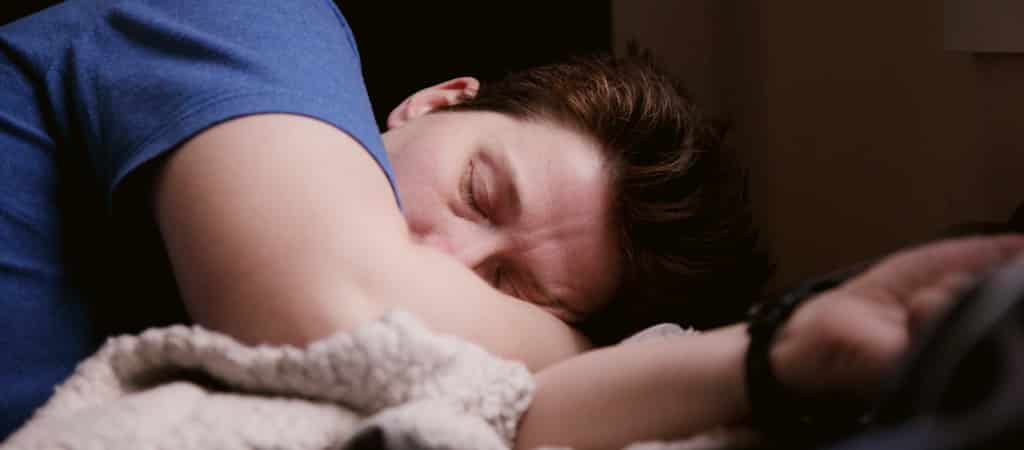- Snoring is caused by a constriction of the upper airways.
- Obstructive sleep apnea can be life threatening.
- The concept of inclined sleeping is considered an effective treatment method.
By definition, snoring is a loud breathing noise that occurs in the upper airways during sleep. Snoring per se is not considered a disease, but a precursor to dangerous diseases such as obstructive sleep apnea. Snoring can also have other health consequences such as sleep disorders. The causes are manifold and often reinforce each other.
Why does one snore at all?
The constriction of the upper airways leads to a slowing down of the airflow and a reduction of the air cushion behind the soft tissues (base of the tongue, uvula, and soft palate). If the soft tissues begin to vibrate, this can lead to audible snoring noises. In children, the cause are often enlarged palatal or pharyngeal tonsils, while in adults the causes are usually more complex. The most common causes among adults are:
- difficulties in nasal breathing due to swelling of the mucous membranes (inflammation, common cold, allergies, anatomical changes e.g. nasal polyps)
- enlarged soft tissues (base of the tongue, palatal or pharyngeal tonsils, uvula)
- dysgnathia (e.g. overbite)
- a weak musculature of the upper respiratory tract (often occurs with the elderly or after taking sleeping pills)
- alcohol consumption
- smoking
- overweight
Research results of the German Society for Sleep Research and Sleep Medicine show that snoring is age and gender dependent. From middle age onwards, nocturnal snoring occurs more and more frequently.
How does snoring manifest itself?
In addition to the classic, audible noises, snoring can also manifest itself in form of disorders regarding falling asleep and sleeping through; as well as headache and a dry mouth. Poor performance and poor concentration can also occur due to disturbed sleep. Those affected often feel tired during the day. The nocturnal sleep problems and their consequences are the first sign that it is no longer just simple snoring. They should be seen as serious signs of obstructive sleep apnea and treated accordingly.
How is snoring treated?
Since snoring itself is not considered a medical condition, no medical treatment is necessary per se – unless it is requested by the person concerned. However, the nocturnal breathing sounds often lead to disturbed sleep – also for the partner, and can be improved by simple measures, such as tilting the bed. However, obstructive sleep apnea, which can arise as a result of snoring, should always be treated medically.
Refraining from sleeping pills, alcohol and nicotine can already have a positive effect on alleviating the annoying nocturnal breathing noises. Sleep experts also recommend maintaining a regular sleep-wake cycle and a healthy sleep hygiene. Those who are very overweight can counteract snoring by reducing their weight. It can also be advisable to strengthen the muscles at the base of the mouth. Those affected often resort to snoring braces. By splinting the soft palate, snoring sounds should be prevented. Avoiding lying on your back during sleep can also be an improvement.
The advantages of inclined sleeping
With the inclined sleeping concept, the entire bed surface is tilted, up to five degrees. Inclined sleeping therapy demonstrably improves blood and lymph circulation. The detoxification of the glyphatic system is also supported. Inclined sleeping also has numerous other advantages for the body structure.
Due to the slight inclination, the body can be exposed to gravity again. In addition, fascia, ligaments, muscles and tendons are strengthened. A degeneration of the spine and connective tissue is prevented. Inclined sleeping can also relieve symptoms of Restless Leg Syndrome, and may help with poor posture.
Sleep-related breathing disorders such as snoring or obstructive sleep apnea are considered risk factors for diseases that can arise due to a lack of oxygen during sleep. The inclined position of the bed can help to open the airways or to keep them open. Inclined sleeping can also improve snoring and the oxygen supply to the brain.
CPAP continuous positive airway pressure devices and surgical therapies
Although CPAP masks lead to the elimination of snoring in most cases, they are rarely used due to the possible side effects and high costs. Surgical methods should always be carefully considered.



Leave a Reply